
Coleman Randolph Hawkins, nicknamed "Hawk" and sometimes "Bean", was an American jazz tenor saxophonist. One of the first prominent jazz musicians on his instrument, as Joachim E. Berendt explained: "there were some tenor players before him, but the instrument was not an acknowledged jazz horn". Hawkins biographer John Chilton described the prevalent styles of tenor saxophone solos prior to Hawkins as "mooing" and "rubbery belches." Hawkins cited as influences Happy Caldwell, Stump Evans, and Prince Robinson, although he was the first to tailor his method of improvisation to the saxophone rather than imitate the techniques of the clarinet. Hawkins' virtuosic, arpeggiated approach to improvisation, with his characteristic rich, emotional, loud, and vibrato-laden tonal style, was the main influence on a generation of tenor players that included Chu Berry, Charlie Barnet, Tex Beneke, Ben Webster, Vido Musso, Herschel Evans, Buddy Tate, and Don Byas, and through them the later tenormen, Arnett Cobb, Illinois Jacquet, Flip Phillips, Ike Quebec, Al Sears, Paul Gonsalves, and Lucky Thompson. While Hawkins became well known with swing music during the big band era, he had a role in the development of bebop in the 1940s.

At the Opera House is a 1958 live album by Ella Fitzgerald. The album presents a recording of the 1957 Jazz at the Philharmonic Concerts. This series of live jazz concerts was devised by Fitzgerald's manager Norman Granz; they ran from 1944 to 1983. Featured on this occasion, in 1957, are Fitzgerald and the leading jazz players of the day in an onstage jam session. The first half of the 1990 CD edition includes a performance that was recorded on September 29, 1957, at the Chicago Opera House, whilst the second half highlights the concert recorded on October 7, 1957, at the Shrine Auditorium, in Los Angeles. The original LP obviously included only the mono tracks (#10-18).

Like Someone in Love is a 1957 studio album by the American jazz singer Ella Fitzgerald, with a studio orchestra arranged and conducted by Frank DeVol. This album represents a fine example of Ella's singing from this period, recorded at the same time as her albums with Louis Armstrong.

Ella Swings Brightly with Nelson is a 1962 studio album by the American jazz singer Ella Fitzgerald, accompanied by an orchestra arranged by Nelson Riddle.
Ellis Larkins was an American jazz pianist born in Baltimore, Maryland, perhaps best known for his two recordings with Ella Fitzgerald: the albums Ella Sings Gershwin (1950) and Songs in a Mellow Mood (1954). He was also the leader in the first solo sides by singer Chris Connor on her album Chris (1954).

Ella Fitzgerald Sings Songs from the Soundtrack of "Let No Man Write My Epitaph" is a 1960 album by the American jazz singer Ella Fitzgerald, accompanied by the pianist Paul Smith. Let No Man Write My Epitaph was a 1960 Hollywood movie featuring Fitzgerald.

Ella in Rome: The Birthday Concert is a live album by Ella Fitzgerald, with a jazz trio led by Lou Levy, and also featuring the Oscar Peterson trio. Recorded in 1958, it was released thirty years later.
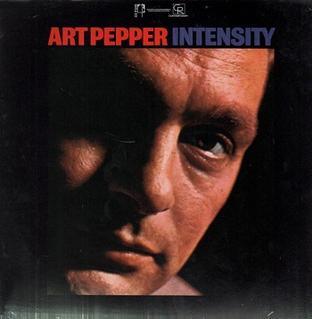
Intensity is a 1960 jazz album by saxophonist Art Pepper playing with Dolo Coker, Jimmy Bond, and Frank Butler. The album was released in 1963.

Revelations is a 1988 album by McCoy Tyner released on the Blue Note label. It was Tyner's first solo piano album since Echoes of a Friend (1972) and first Blue Note recording since Asante (1970). It was recorded in October 1988 and features thirteen solo performances by Tyner recorded at Merkin Hall. The Allmusic review by Scott Yanow states that "This is a rather special project from one of the finest jazz pianists of the past 35 years".
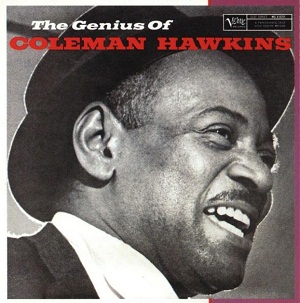
The Genius of Coleman Hawkins is a 1957 album by tenor saxophonist Coleman Hawkins, featuring the Oscar Peterson quartet.

At Ease with Coleman Hawkins is an album by saxophonist Coleman Hawkins which was recorded in 1960 and released on the Moodsville label.
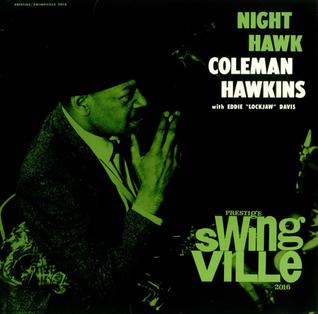
Night Hawk is an album by saxophonists Coleman Hawkins with Eddie "Lockjaw" Davis recorded at the end of 1960 and released on the Swingville label.

Everybody Likes Hampton Hawes is the third album by pianist Hampton Hawes recorded in 1956 and released on the Contemporary label.

Songs for Hip Lovers is a 1957 vocal album by the jazz bandleader Woody Herman, arranged by Marty Paich.

The Hawk Talks is an album by saxophonist Coleman Hawkins compiling tracks recorded between 1952 and 1953 for the Decca label which were first released on LP in 1955.
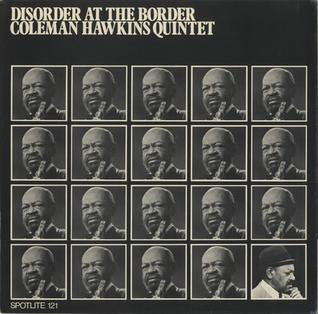
Disorder at the Border is a live album by saxophonist Coleman Hawkins compiling tracks which were originally broadcast in 1952 and first released on LP in 1973 on the UK Spotlite label.
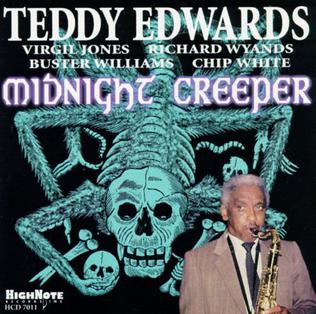
Midnight Creeper is an album by saxophonist Teddy Edwards which was recorded in 1997 and released on the HighNote label.

Swing Time! is an album by pianist Claude Hopkins with saxophonist Budd Johnson and trombonist Vic Dickenson recorded in 1963 and originally released by the Swingville label.

What It's All About is an album by trumpeter Roy Eldridge recorded in 1976 and released by the Pablo label.

Rainbow Mist is an album by the American jazz saxophonist Coleman Hawkins compiling recordings from 1944 originally released by Apollo Records that was released by the Delmark label in 1992.



















